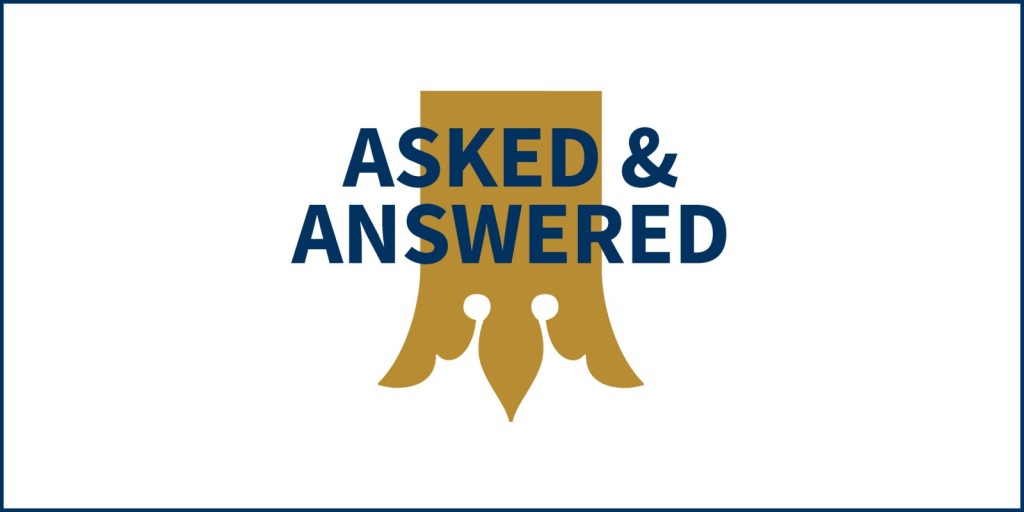You have free articles remaining this month.
Subscribe to the RP Witness for full access to new articles and the complete archives.
My children are in an extracurricular drama program that we love and appreciate. Recently, several of their teachers started holding “mindfulness” and “meditation” sessions at the beginning of their classes. There is no mention of false gods and no chanting, but we’re not sure what we think. Can this be okay for Christians to participate in? What should we do?
___________________________
Finding something in the community where the kids can grow and thrive is an important way to ground your life and ministry. Navigating the expectations of others is often the most daunting part of being involved in such an activity. Parents need to be careful to resist—and empower their children to resist—unbiblical influences, however innocent they may appear at first.
But such opportunities also might give you a conversation with your children about making healthy distinctions and decisions. Further inquiry into the content and context of these sessions will help guide you about whether they represent a danger to your child or might open the door to a frequently forgotten but biblical discipline.
Meditation is an important but seldom practiced spiritual discipline in the Christian life. The Navigators have illustrated a believer’s grip on his or her Bible by labeling each finger: memorize, study, read, and hear; but they note that the thumb, which holds everything together, is meditate. Reformation Heritage Books published a work a few years ago called God’s Battle Plan for the Mind: The Puritan Practice of Biblical Meditation (David W. Saxton). Heavily laden with quotes from the Puritans, Mr. Saxton demonstrates the importance of meditation, where it often goes wrong, and how we can recover the habit.
The Bible has both examples and commands pertaining to meditation. Isaac goes out into the field at evening to meditate (Gen. 24:63). Joshua is commanded to meditate on the law ceaselessly (Josh. 1:8). Timothy is told to meditate on his responsibilities, his performance of them, and his need for improvement in them (1 Tim. 4:15).
Not surprisingly, the Psalms have more verses about meditation than any other part of the Bible. David meditates (Ps. 5:1; title of Pss. 7; 19:14; 64:1), and so do the sons of Korah (49:3). This habit seemed particularly popular on sleepless nights (63:6; 77:6; 119:148). The Psalter begins with the reminder that the righteous man meditates on God’s law, as Joshua was commanded, day and night (1:2). Soon after, David instructs us to combat sinful anger by meditating quietly (4:4).
Instructively, Psalm 119 dominates the biblical understanding of meditation, employing the word eight times (vv. 15, 23, 27, 48, 78, 97, 99, 148). In addition to containing a symbolic number of references, Psalm 119 instructs us in the content of our meditation: God’s precepts, statutes, ways, works, and Word (see Westminster Shorter Catechism, Question and Answer 54). This is the stark difference between Christian meditation and other kinds. While some argue that proper meditation is an emptying of the mind, the Bible insists that we should instead fill our thoughts with those things that reveal God to us. We do not contemplate ourselves or consider nothing. Rather, we are to think deeply about those words and works by which we know God. In studying the revelations of God (Ps. 143:5; 145:5; Mal. 3:16), we focus our thoughts on God Himself.
Paul writes of meditation in Philippians 4:8. He urges saints to battle anxiety with prayer and contemplation. The peace of God is with us to guard us from fear (vv. 7, 9), but we acquire such peace through prayer and meditation. Paul also provides us with the content of our contemplation: anything that is true, noble, just, pure, lovely, of good report, virtuous, and praiseworthy. This list leaves us with plenty, and, Paul specifically writes, we are to “meditate on these things.” By filling our minds with thoughts of these wonderful things, we put both ourselves and our anxiety to bed (Ps. 4:4).
The drama program might be a good opportunity to teach the children how to practice biblical meditation and godly mindfulness. But please be careful. Make sure the teacher is not requiring sin, and check in regularly to make sure that something that began innocently enough (i.e., quiet time) did not evolve into something more sinister (e.g., ungodly chants and recitations). Likewise, consult your local leadership for support and counsel. It would be best to have a few folks working with your children or even the program itself to make sure that this is, in fact, a quiet moment to think about God and not a small step into big trouble. Of course the age and discernment of your child is a key consideration: a child of 16 might be able to redeem something that would confuse a child of 6.
If the world (for once) is going to sit silently and let people think their own thoughts, then let’s take advantage of the opportunity. The best place to start is with Scripture memory. With chunks of the Bible hidden in our hearts (Ps. 119:11), we always have something true, noble, just, etc., to turn to in our brief moments of quiet. Put a piece of the Bible in the heart so that it can continually come to mind.
___________________________
Have a question on your heart that you’d like to see answered here? Send it to info@rpwitness.org.
James Faris and Noah Bailey | column editors
